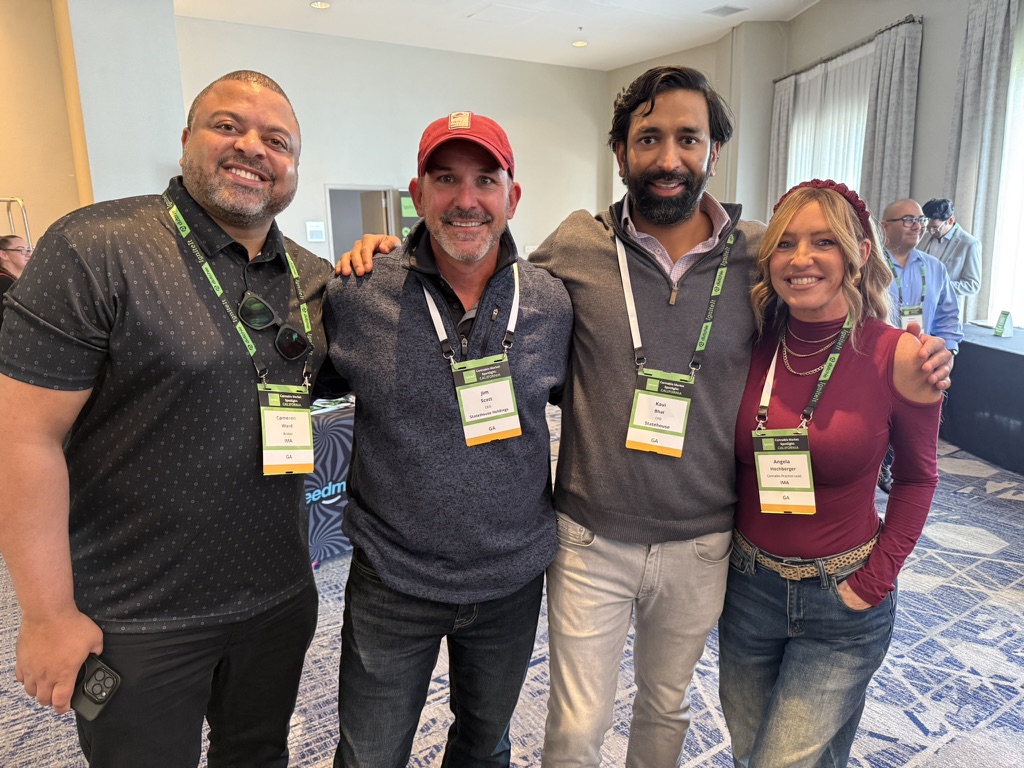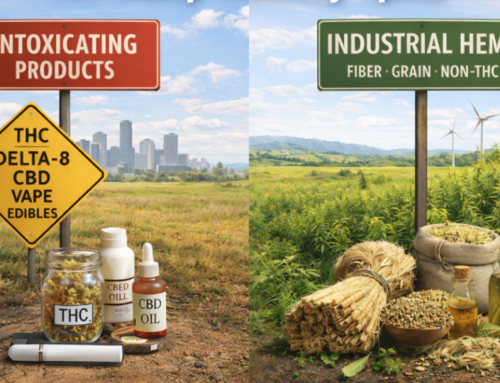What’s Changing Now for Cannabis Operators: Lessons from Anaheim’s IgniteIt 2025
LOS ANGELES- The cannabis industry has always been about resilience, reinvention, and relentless adaptation. At this year’s IgniteIt Market Spotlight: California (formerly the Benzinga Cannabis Conference) in Anaheim, that message was louder than ever. The event gathered California’s leading operators, investors, regulators, and innovators for a candid look at what comes next—and what must change now.
Across every panel, fireside chat, and roundtable, one theme stood out: the pace of change in cannabis is accelerating, and those who fail to evolve fast enough will be left behind. In a state that once defined the modern cannabis market, operators are facing an inflection point—where survival depends not just on cutting costs, but on fundamentally rethinking how they work, compete, and grow.

A Market Under Pressure and Poised for Reinvention
California’s cannabis market remains the largest in the world, but it’s also the most competitive and constrained. Operators face rising compliance costs, inconsistent enforcement, shrinking margins, and limited access to capital. Even well-established brands are feeling the squeeze.
Speakers at IgniteIt didn’t sugarcoat it. They spoke openly about margin compression, tax burdens, and operational inefficiencies that make profitability elusive. But they also highlighted new opportunities emerging from change: the possibility of federal rescheduling, smarter automation, new distribution models, and a consumer base that’s maturing fast.
The energy at IgniteIt wasn’t defeatist—it was transformational. The conversations centered on what leaders must do now to adapt, much like the way global CPG companies are rethinking growth through agility and accountability. That mindset—“the world is changing, and we need to change faster”—perfectly captures where cannabis is heading.

Driving Internal Growth: Focus and Innovation
At IgniteIt, operators agreed that growth will no longer come from expanding footprint alone. The next wave will come from internal growth—maximizing output, efficiency, and differentiation inside existing operations.
That means investing in the right things: automation tools that reduce manual labor, data systems that enable real-time decision-making, and innovation pipelines that refresh product lines with meaningful differentiation.
In practical terms, according to Kieve Huffman from agency Engager Digital, he said it’s about ”creating products consumers actually want—wellness-based SKUs, functional formulations, and value-driven price points.” Brands that act like true consumer packaged goods companies, with disciplined R&D, market testing, and long-term innovation cycles, are the ones most likely to endure.
Winning Portfolio Discipline
Another key takeaway was portfolio focus. According to Brian Caine, CEO of Rad Recruitment, he noticed that too many cannabis operators, especially in California, have spread themselves too thin—across multiple brands, formats, or licenses that no longer deliver returns.
The most successful companies will now treat their portfolio like a living organism—evaluating each business unit, SKU, and channel on market position, growth potential, and margin contribution. Those that underperform must be either fixed or phased out.
This level of discipline is essential for financial health and strategic clarity. Scale only delivers value when every part of the portfolio is pulling its weight. By narrowing the focus, operators can concentrate capital and talent on the areas with the greatest upside.

Embedding a Culture of Performance
One of the most powerful ideas discussed in Anaheim was culture—not the cannabis “lifestyle” culture, but a performance culture.
In an environment defined by volatility, every team member needs to understand what winning looks like. Operators must instill systems of accountability and recognition, tying performance metrics directly to outcomes. This means introducing clear KPIs—growth, cash flow, cost reduction—and linking them to incentives.
Cannabis companies are maturing beyond the startup phase. They are becoming professional organizations that need structure, data, and measurable progress. A culture of relentless execution—where teams are empowered to act fast and course-correct quickly—is the foundation for sustained success.
Transforming How Work Gets Done
Transformation was a recurring theme throughout IgniteIt. Speakers and executives pointed to structural inefficiencies that weigh down even the best-run operators: redundant systems, slow communication chains, and outdated manual processes.
The call to action was simple—simplify, automate, and reorganize.
Automation can take the form of digital compliance tracking, AI-assisted inventory reconciliation, or integrated ERP systems that unify finance, sales, and production data. Simplification means reducing decision layers and streamlining management structures so operators can move faster.
As in many maturing industries, restructuring is inevitable. Some companies may need to reduce headcount or merge functions, but doing so with transparency and respect can strengthen the business long term. The goal is to create leaner, smarter organizations built for speed and adaptability.
Competing in a Compressed Economy
If there was one phrase that summed up the mood in Anaheim, it was “do more with less.”
California’s excise tax reset—known informally as the “second chance at 15%”—offered a glimmer of relief, but most agreed the road to profitability still depends on disciplined financial management.
Operators must optimize sourcing, negotiate supplier terms, and adopt lean operational models that reduce waste and maximize throughput. This is not about austerity—it’s about building resilience.
Many at IgniteIt predicted a continued wave of consolidation and restructuring in 2026. For operators with strong fundamentals, this represents opportunity: to acquire distressed assets, merge distribution networks, or form partnerships that strengthen regional scale. The ones who plan for it now will be positioned to lead the next growth cycle.

Some of the guests at IngiteIt in Anaheim from right to left: Raymond Navis, Marty Higgins, Steve Sukman.
Staying Ahead of Regulation
The prospect of federal rescheduling dominated many conversations. While the details remain uncertain, operators are rightfully preparing for an environment that could transform tax treatment, banking access, and interstate commerce.
That said, regulatory uncertainty cuts both ways. The Department of Cannabis Control reminded attendees that compliance standards remain non-negotiable, and enforcement will likely increase, not decrease, during transition periods.
Smart operators are taking a proactive stance: building compliance automation, maintaining transparent reporting, and participating in policy dialogue to help shape the future framework. Those who view compliance as a strategic advantage—not just a cost—will have a clear edge when regulation inevitably evolves.
Leading with Authenticity and Purpose
In the midst of all this operational and structural change, one thing cannot be lost: the culture and purpose that define cannabis.
Consumers continue to value brands that stand for something real—whether it’s wellness, equity, sustainability, or craftsmanship. Authenticity still wins hearts, loyalty, and premium positioning. As companies scale and professionalize, maintaining that emotional connection is what separates enduring brands from commodity players.
Internally, culture matters just as much. Retaining talent during turbulent times requires leaders to communicate clearly, lead with empathy, and align teams around a shared vision. Purpose is not just a marketing tool—it’s a stabilizer.
Highly Capitalized Network Was There
Highly Capitalized Network (HCN) was on the ground in Anaheim capturing the energy of the event, recording more than 30 exclusive interviews with the high and mighty of the cannabis industry. These conversations with operators, investors, regulators, and innovators will be broadcast across HCN’s platforms and amplified to tens of thousands of professionals on LinkedIn, extending the reach far beyond the event floor.
If your company needs leads at scale, HCN combines the power and precision of digital marketing with an audience of engaged industry decision-makers. From podcasts and newsletters to video campaigns and investor outreach, HCN connects cannabis companies with customers, partners, and capital.
Reach out to explore how your brand can tap into the scale and influence of HCN and LinkedIn combined.
The world is changing—and cannabis operators must change even faster. The ones who simplify, automate, and focus will not just survive this transformation—they’ll define the next era of the industry.
Main image: Guests attending IngiteIt Anaheim 2025




































